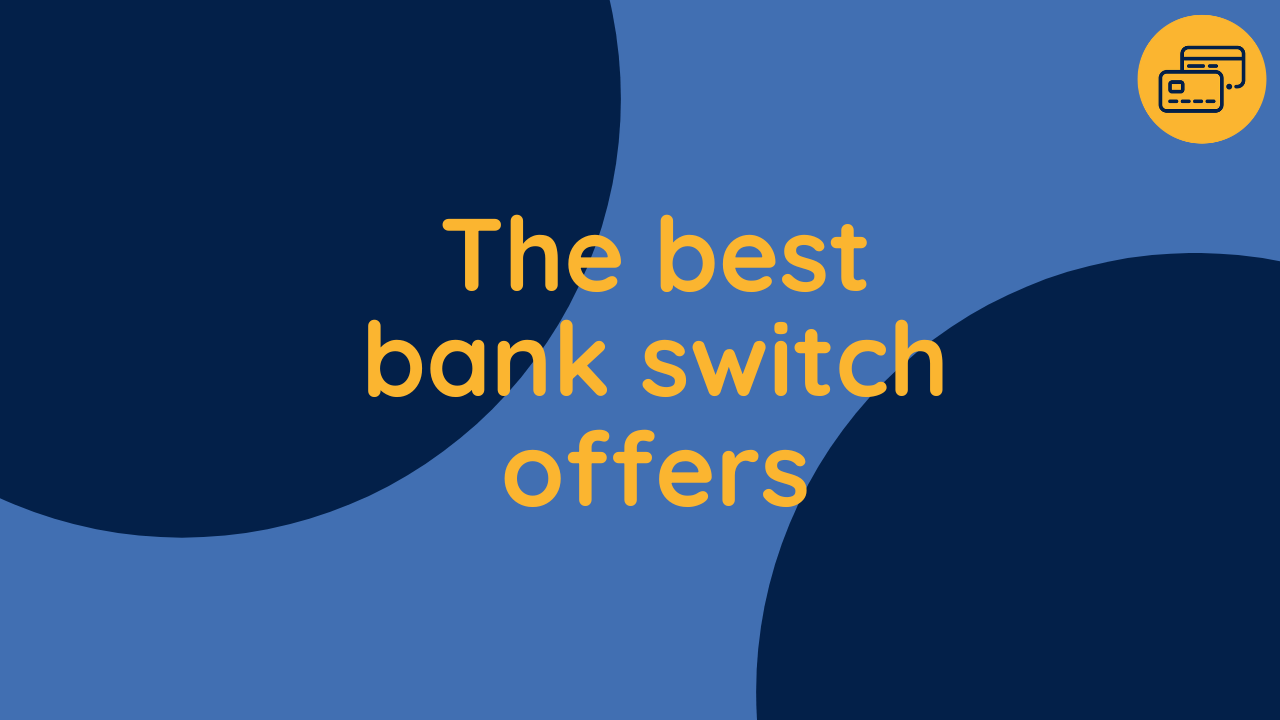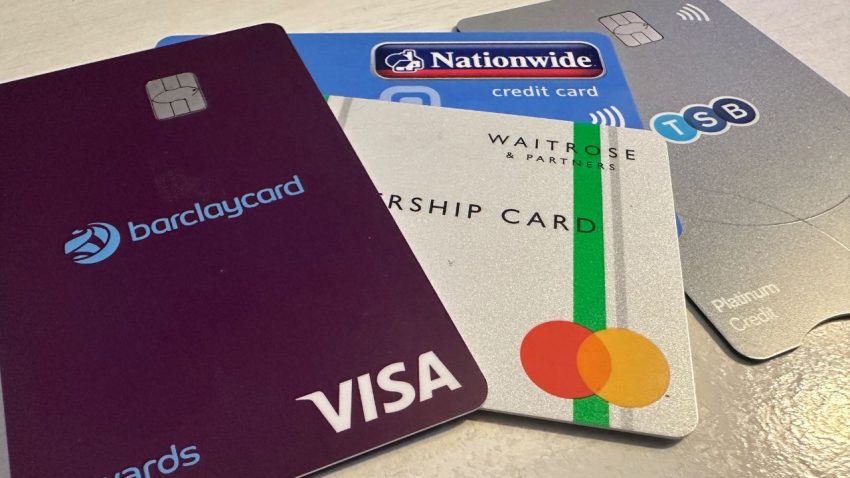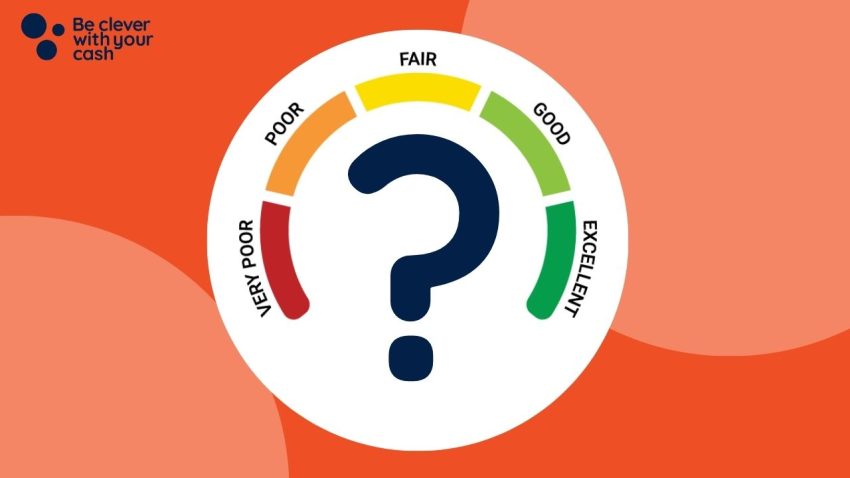Moving bank can bring you savings and make it easier to manage your money. But what does it do to your credit report?
I’ve had a few readers ask me recently about the impact of switching bank or opening up new accounts on their credit score.
When you switch bank there are two things you’re doing. Opening a new current account and closing an old one. Both these actions could have an impact on your credit report.
Though for most people the odd switch won’t make much difference, the more you do it, the bigger the impact. Here’s what you need to know.
Some articles on the site contain affiliate links, which provide a small commission to help fund our work. However, they won’t affect the price you pay or our editorial independence. Read more here.
New bank accounts and credit checks
Each time you open a new current account to switch to, the new bank will look at your credit report. There are two ways they can do this.
One is known as a ‘soft check’. For a current account, this is essentially just to verify you are who you say you are. Although it could potentially be used to let you know the chances of getting an overdraft – perhaps even a pre-approved one.
Just performing a soft check won’t appear on your file. This is also what happens when you get comparison sites to provide a load of quotes or when you check your own file.
However, most banks and lenders will instead conduct a ‘hard check’. This is where the result of the application – good or bad – will appear on your report, usually for a year. With most bank account applications it will be one of these hard checks.
I’ve shared further down the article which main banks won’t hard search a new current account, so you can use it as a dummy account for switching.
When opening a bank account can hurt your credit score
Multiple hard checks on your report
If the bank is running a hard check when you apply for an account, this mark will appear on your report. Now, if you’re just opening a new bank account that’s not really going to be much of an issue.
But if you’re opening more than one current account in a short space of time, or also opening a credit card, switching your energy, applying for a loan and so on, they’ll see multiple searches.
This could indicate to a lender that you’re desperate for credit, and therefore not a good person to accept.
That doesn’t mean you can’t do it. If you have a healthy credit report and don’t have any essential applications for credit coming up you can probably get away with a number of applications – though your score will dip, it will recover.
Get the best of our money saving content every week, straight to your inbox
Plus, new Quidco customers get a high paying £18 welcome offer

Applying for an overdraft
Though most people don’t realise it, an overdraft is essentially a pre-approved loan (at a staggering rate, close to 40%).
Just applying for one as part of your application can have a negative impact on your credit score – even if you don’t use it.
It’s not just that if you do this the bank will conduct one of those hard searches on your report. The overdraft itself will also show future lenders that you already have access to credit and they might not want to lend you more.
There’s a chance an unused overdraft could help your credit report in the longer term if it helps you keep your credit utilisation (i.e. the percent of borrowing you’re actually using) at under 25%. But using one will cost you unless it’s at 0%.
So if you don’t need an overdraft with your new account then don’t apply for it. And I’d suggest you look elsewhere for cheaper lending IF you eventually need it.
Opening a joint account
When you open any financial product with another person, your credit files become linked. So if the person you run the account with has a bad credit score then it could bring your rating down too. And it goes both ways, so you could hurt someone else’s ability to get credit.
 Featured switching deal
Featured switching deal
 Customer rating
3.8/5
Customer rating
3.8/5
- Switch bonus£200
- Offer endsUnknown
- Extra bonus£25 Amazon Gift Card
- FSCS Protected? Yes
- Switch bonus requirements Switch using the Current Account Switch Service and close your old account within 60 days of starting the switch
- Deposit requirements Deposit £1,500 in the first 60 days from opening the account
- Direct debits transferred over Set up two Direct Debits before or after the switch from a selected list of household bills
- Existing customers? Can't have held any Santander current account on 1 January 2025
- Restrictions Can't have received a switching bonus from Santander already, offer limited to once per person
- Eligible accounts Open a new or hold an existing Everyday, Edge, Edge Up or Edge Explorer current account
- £25 Amazon Gift Card requirements To qualify for the gift card, you need to complete a full switch using CASS, and make five debit card transactions within 30 days of opening the account
When switching a bank account can hurt your credit score
Losing longevity
This is one to consider if you’re switching from an older bank account. A good signal for your credit score is a long relationship with a financial provider.
Often the longest one we have is with our bank, so switching away replaces years and years of this for an account with no history.
So even if the new account is just a soft search on your credit report, switching could still see a knock-on effect.
There are a few ways around this. First, it’s all your credit accounts, including credit cards, which are looked at, and it’s often the average age. So if you have an older credit card, that mitigates moving away from a long-term bank.
Or you avoid closing the old account completely. If you open a new account and can run a partial switch rather than a full switch. This will help you move all your direct debits, standing orders and balance without you having to close the old account.
However, you won’t be able to claim any of the free cash from bank switch offers or get the benefits of the seven-day Current Account Switching Guarantee.
Alternatively, you can open a new account designed just for switching. You might have to set up a couple of direct debits or make a minimum deposit each month, but you can use this to switch for bonuses.
Does your credit score really matter?
Now we know the impact of bank switching, it’s important to clarify a few things about credit scores. First up, there are three different scores from three different credit reference agencies. They all assess your credit report differently, so each contributing factor might have a different impact on each score.
Second, though scores can give you an idea of how healthy your credit report is, it’s the credit file itself that banks and lenders look at – not the score.
The way they will interpret the data on the report will change from institution to institution, so they might not agree with the scoring set by the credit reference agency.
And the credit report isn’t even the only thing banks will look at. For example, they might have their own data about if you’re an existing or past customer, and you’ll provide some additional information when you apply.
That means even with a great score you could get turned down for certain applications, or even if you’re rejected for one product, another might accept you.
So the point is, though credit scores are useful for us as customers, it’s what appears in the file that matters to those doing the checks. And that means don’t get too caught up in your score dropping after a bank switch.
When to avoid a bank switch
Saying that it’s still very important to keep your credit score in mind when thinking about the latest switch offer.
In particular, if you’re planning to apply for anything major in the next six months, such as a credit card or loan, and especially a mortgage, then it makes sense to avoid opening a new account and switching for six months to a year.
Are multiple bank switches a bad idea?
The more you switch, especially in a short space of time, the bigger the drop in your credit score. So it’ll make short-term applications harder.
Experian recommends spacing out new applications for any type of credit every three months or so. At best that’s four bank switches per year. And if you factor in other things like credit cards that could reduce further.
But you can switch more than this – I once switched three accounts in the same month, and I’ve regularly opened new types of credit in concurrent months. But I also didn’t have anything important to apply for that year.
Of course, this won’t be a probem if you’ve been switching for a while as you might find you’re only eligible for new switch deals once or twice a year, if that.
Bank accounts that won’t hard credit check you
No credit check bank accounts are obviously useful if you need a new current account to switch from.
Full current accounts
Starling Bank
This digital bank will only do a soft check when you apply. They’ll use that to verify who you are and check what overdraft they could offer you, but they won’t do the full hard search unless you say you’d like the overdraft. Here’s a full Starling Bank review.
Monzo Bank
There’s also no hard check for Monzo, another digital bank. Here’s a full Monzo Bank review.
Chase Bank
You can now switch in and out of Chase, though if you switch away you won’t ever be able to open another. Here’s a full Chase Bank review.
Basic bank accounts
Most major banks will offer these free accounts. They won’t be subject to a credit check and you can open one with just one form of ID. You can do everything with one that you can with a standard account. However if you’re eligible for a full account you probably won’t be able to get a basic account.
Some additional accounts
If you already have a current account with a bank, it might be possible to open an extra one without a hard search. Over on the Facebook group, some readers have reported this for Lloyds, Halifax and Santander, and I had the same experience. However I’d always approach doing this with the expectation that a hard search could happen.







What never seems to get mentioned on bank switching are two things in my view. Firstly some people have issues trying to do the required photo i.d., online. Secondly, if you have another product with the bank you’re switching from, like a savings account, that doesn’t get switched over.
I only realised this quite late in a switch, I’d need to remove the savings/ISA from the bank, before it went ahead. As I have a disability & don’t drive, this isn’t always easy. I just wish, that apart from impacting your credit score, these things are talked about.
For those that have overdrafts, ignoring their high interest rate, is it worth closing it if you have no need any more or does it not make a difference to your credit score?
I have initiated the switch from HSBC to First Direct mainly for the free cash and also because the service reviews are much higher with First Direct. Given they are the same banking group would this still affect my accessibility to Mortgages? If this is the case I may cancel the switch to keep my HSBC account open which I have had since forever but they really arent looking after me. I have also been a bit crazy opening a number of different current accounts lately to get access to their savings account products so I’m worried that I have damaged my credit report when I’m going to need it for a new mortgage soon (6 to 12 months?!)
If I have, is there anything I can do to repair it?
Definitely avoid any new credit applications 6 months before a mortgage application
Every credit check company always ask for a telephone number to submit-why? woud not wish to discuss over the phone-too personal
what is the answerplease
Presumably so they can check with you if they see suspicious activity on your new account – I doubt they’ll ring up for a chat when most of the information can be given online
Really useful Andy thanks
Maybe you could do a follow up on how to keep up on and more advice on credit reference for us all
Yes, it’s on its way!
Seems to me opening another credit card is easier than changing banks. It’s easier to get credit card credit than an overdraft because there’s more profit in it for the credit card provider. Next time you visit your bank ask ‘l’d like to borrow £1000 for 13 weeks please. Which is less expensive – using the bank’s credit card or my overdraft facility. Can l have the formula to take away to mull over please ?’
There are always credit card providers offering 12 month or longer interest free periods on purchases made within the first 3 months say. You can basically treat it as an interest free loan as long as you repay it within the interest free period.
Certainly a far better option than using an overdraft facility. You just need to have the discipline to not start splashing out on other things with the new card, which is obliviously what the credit card provider is hoping for. They don’t make money from giving customers interest free credit.
I’ve exploited these sort of offers on various occasions when making a sizeable purchase, even though I’ve had enough money in savings to pay for the purchase outright. Far better to leave my money earning a bit of interest in my savings account, make the minimum payment each month on the credit card then clear the balance in the final month from my savings.